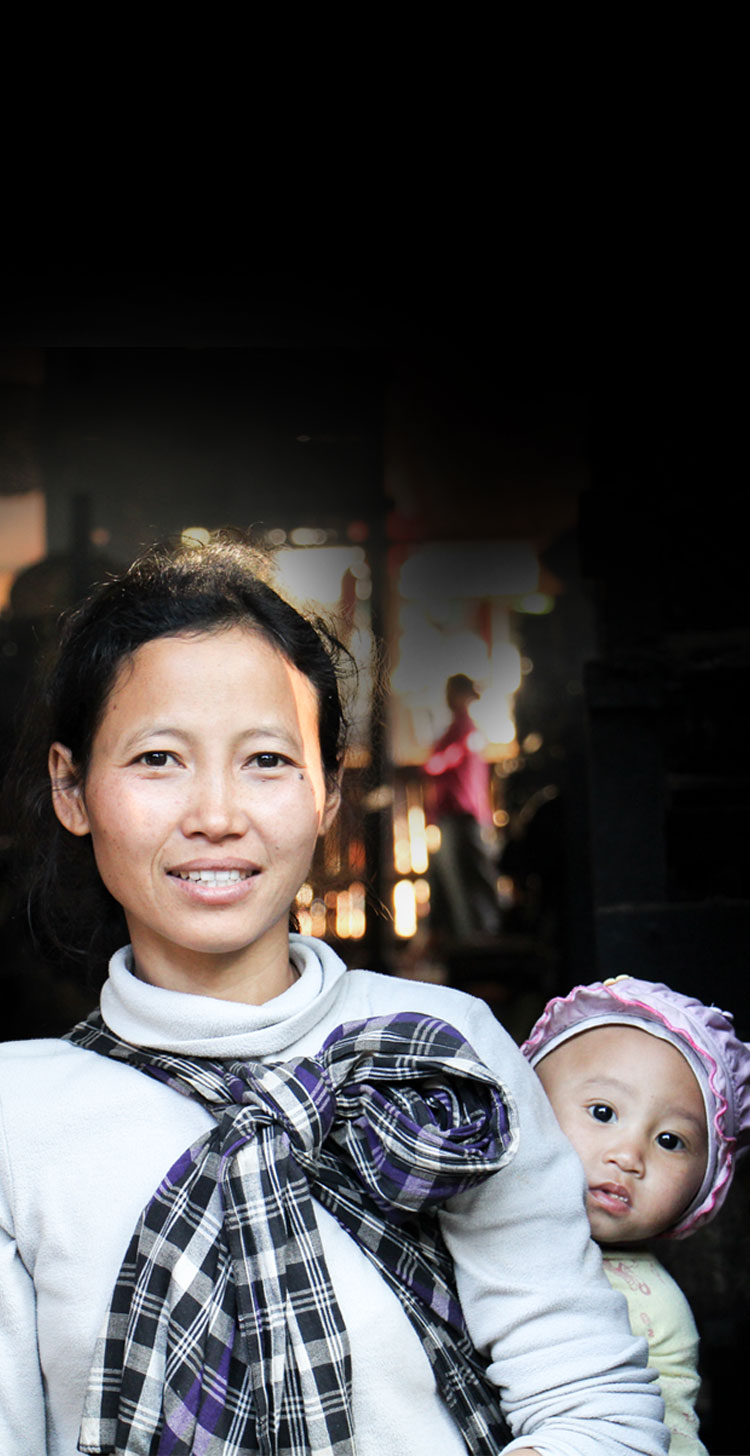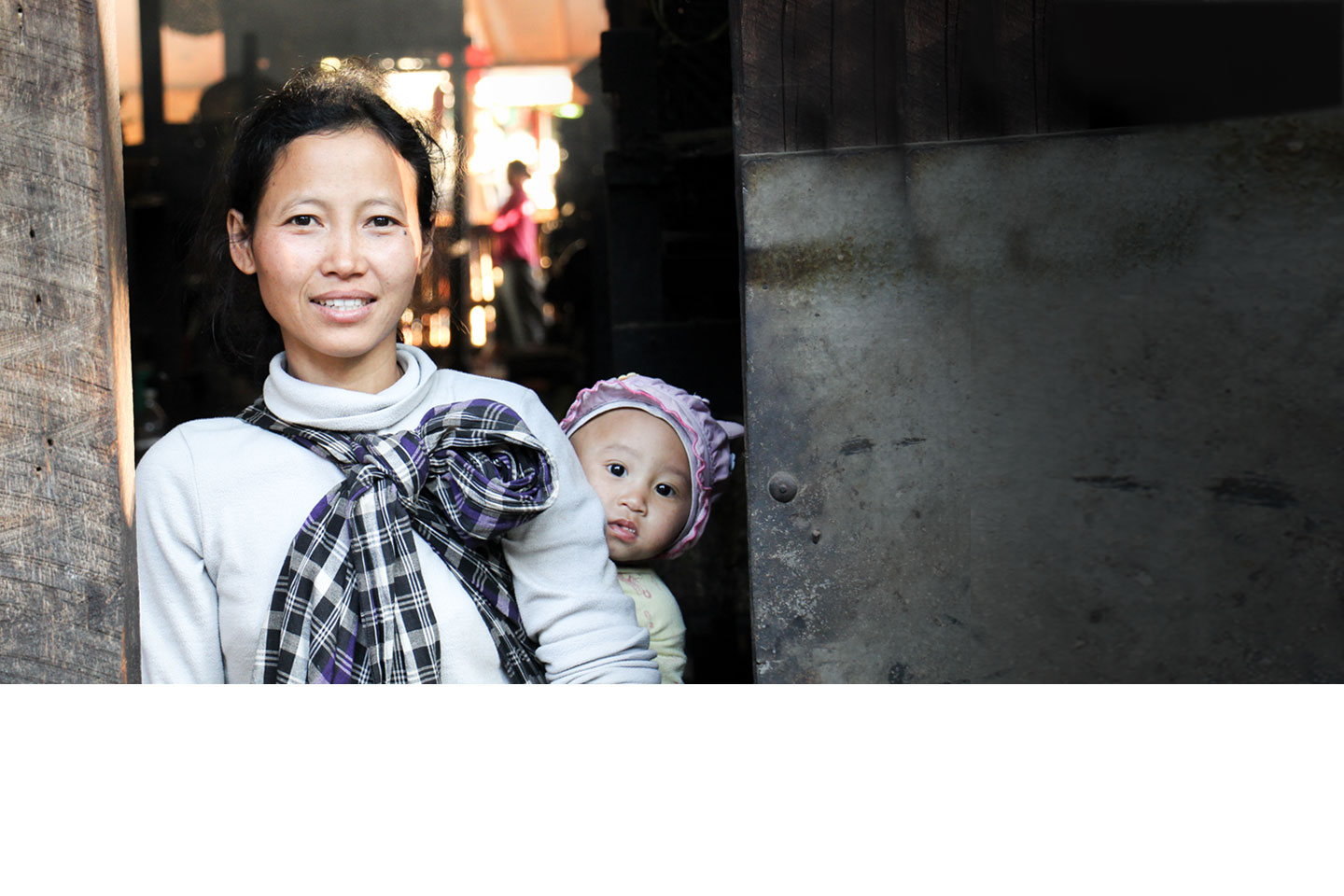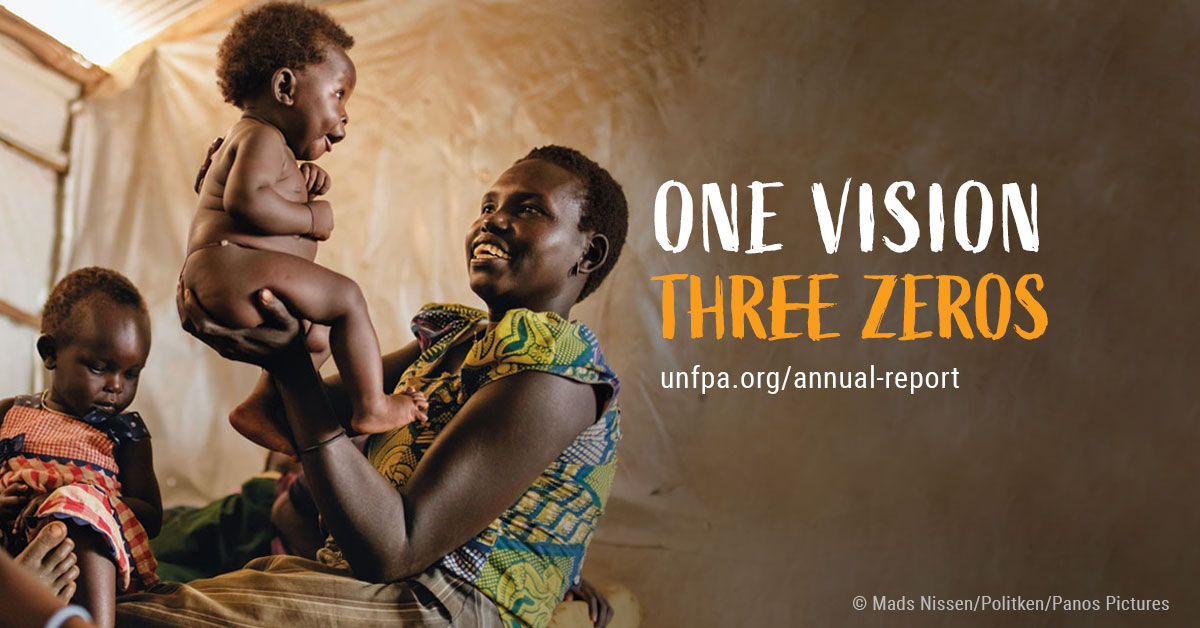

One Vision Three Zeros
UNFPA Annual Report 2018
Women have a right to make their own decisions about whether, when or how often to become pregnant. That right was reaffirmed in 1994 in Cairo at the landmark International Conference on Population and Development (ICPD), where 179 governments also agreed that sexual and reproductive health is the foundation for economic and social development.
Despite the remarkable gains made since 1994, we still have a long way to go before we can claim to have lived up to the promises we made in Cairo.
In 2018, UNFPA set in motion a strategic effort, based on quality data, to achieve the goals and vision of the Programme of Action. We are striving for three zeros by 2030: zero unmet need for contraception; zero preventable maternal deaths; and zero gender-based violence and harmful practices, such as child marriage and female genital mutilation.
Governments, civil society, and individuals must all be part of the movement and will have an opportunity to join the next leg of the journey towards rights and choices for all at the Nairobi Summit on ICPD25 in Kenya in November 2019. The Governments of Kenya and Denmark, co-conveners together with UNFPA, will call on all donors, all countries, all civil society organizations, all community and youth leaders, all parliamentarians, all international financial institutions and the private sector to recommit to the principles and objectives of the Programme of Action--to make our three zeros everyone’s three zeros, and to complete the unfinished business of Cairo.
Dr. Natalia KanemUNFPA Executive Director
United Nations Population Fund
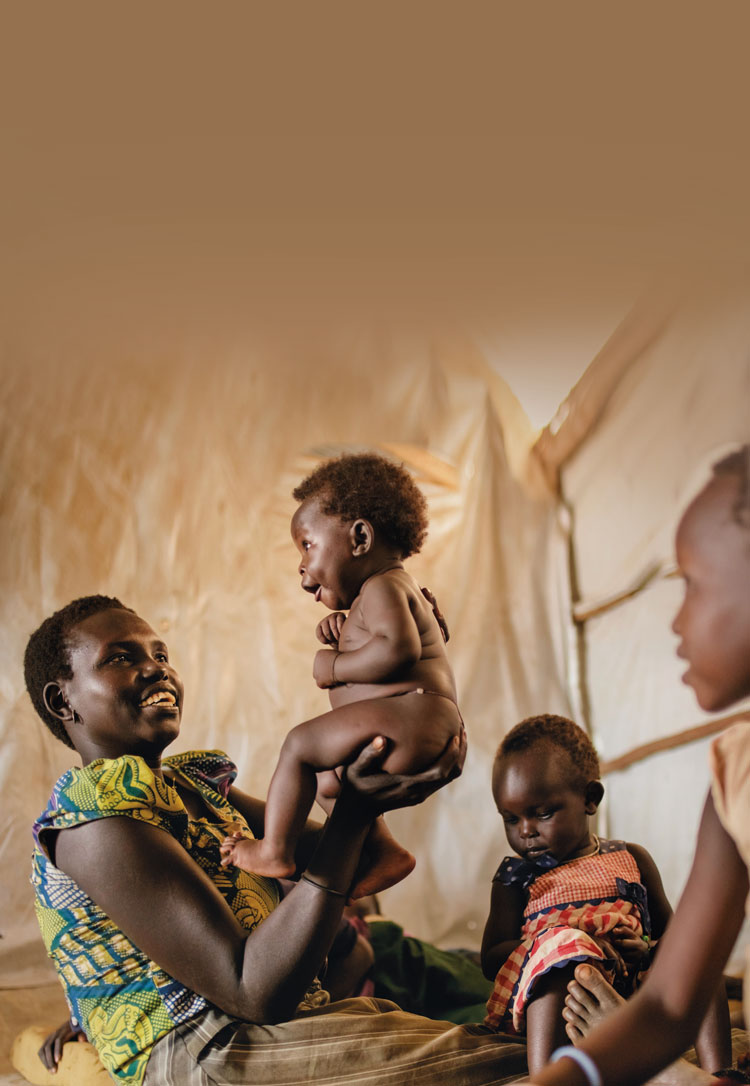
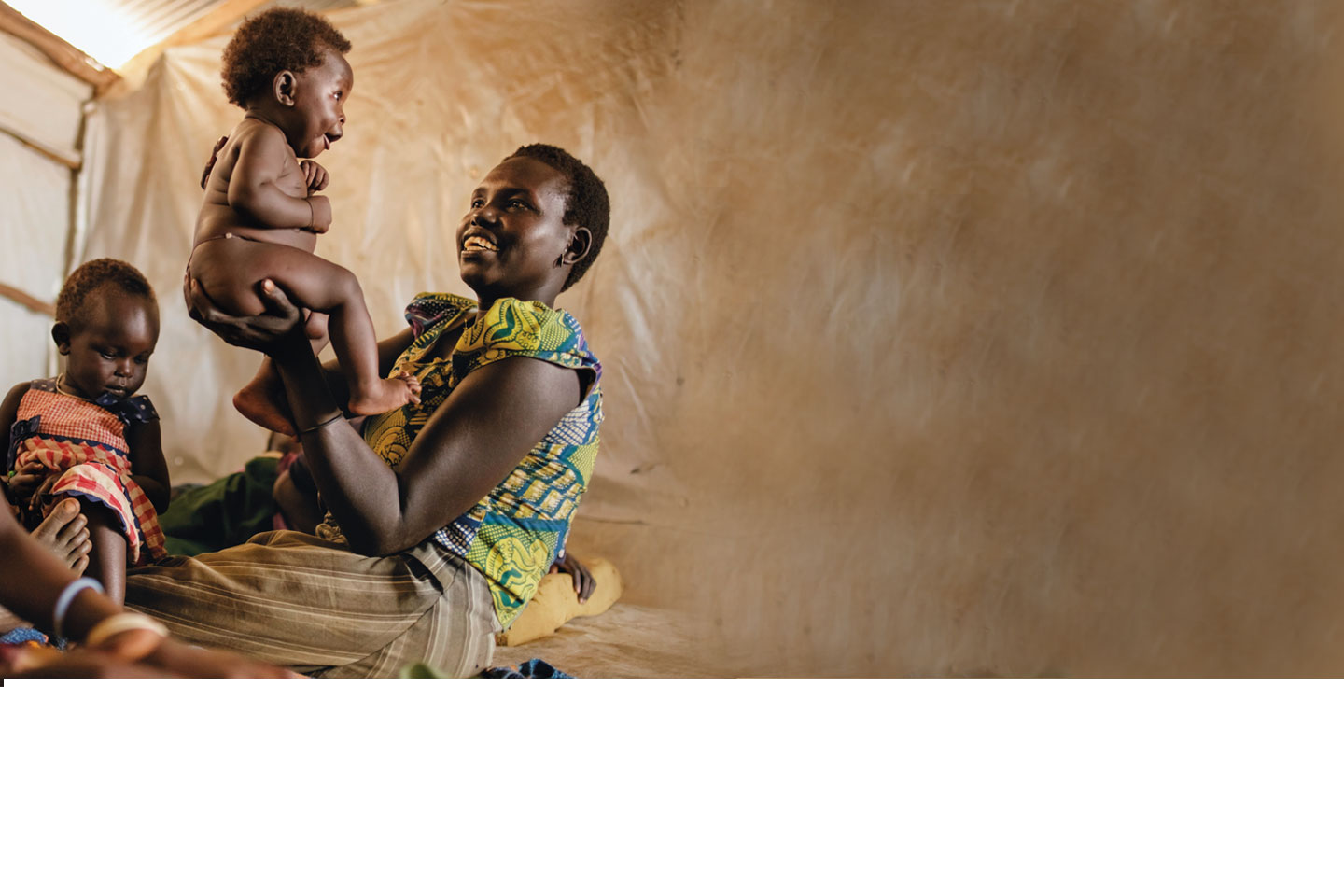
Global progress towards Zero Preventable maternal deaths

216 number of maternal deaths worldwide per 100,000 live births
While progress towards reducing the maternal mortality ratio in developing countries continued in 2018, it is not at the rate required to achieve the UNFPA goal of zero preventable maternal deaths by 2030. To reach that goal, developing countries must accelerate their annual rates of reduction by at least 7.5 percent.
UNFPA is helping lower the number of preventable maternal deaths through programmes that reduce inequities in access to quality sexual, reproductive, maternal and newborn health care, ensuring universal health coverage that includes sexual and reproductive health care, and strengthening health systems.
Heading towards zero preventable maternal deaths
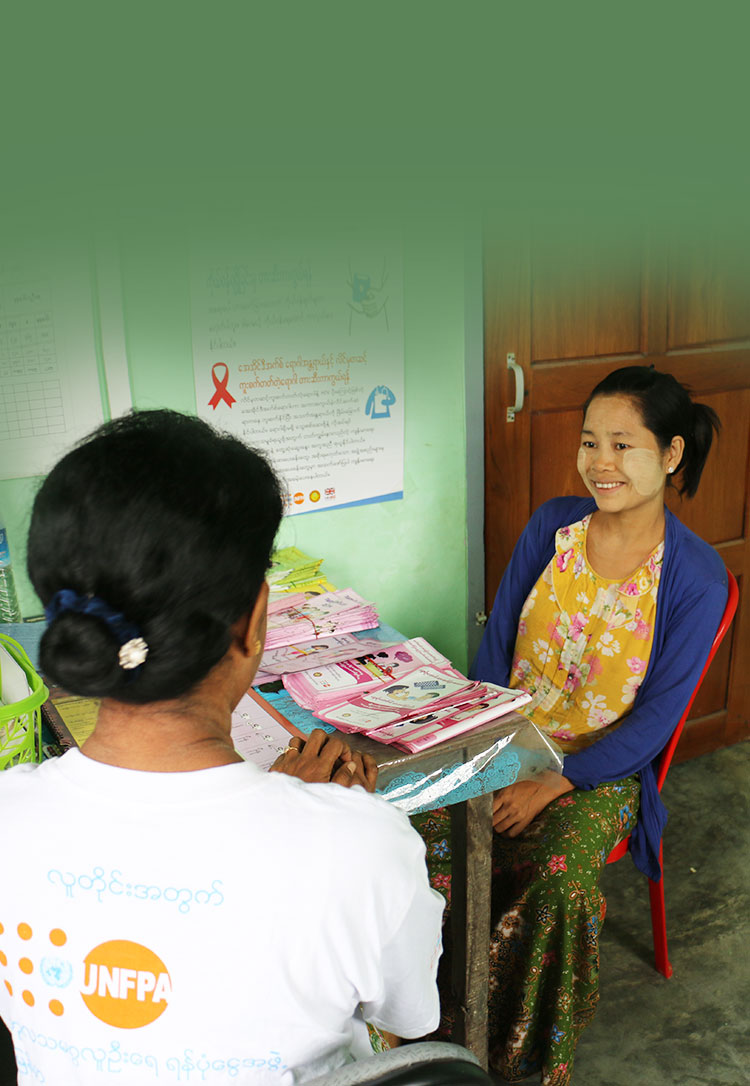
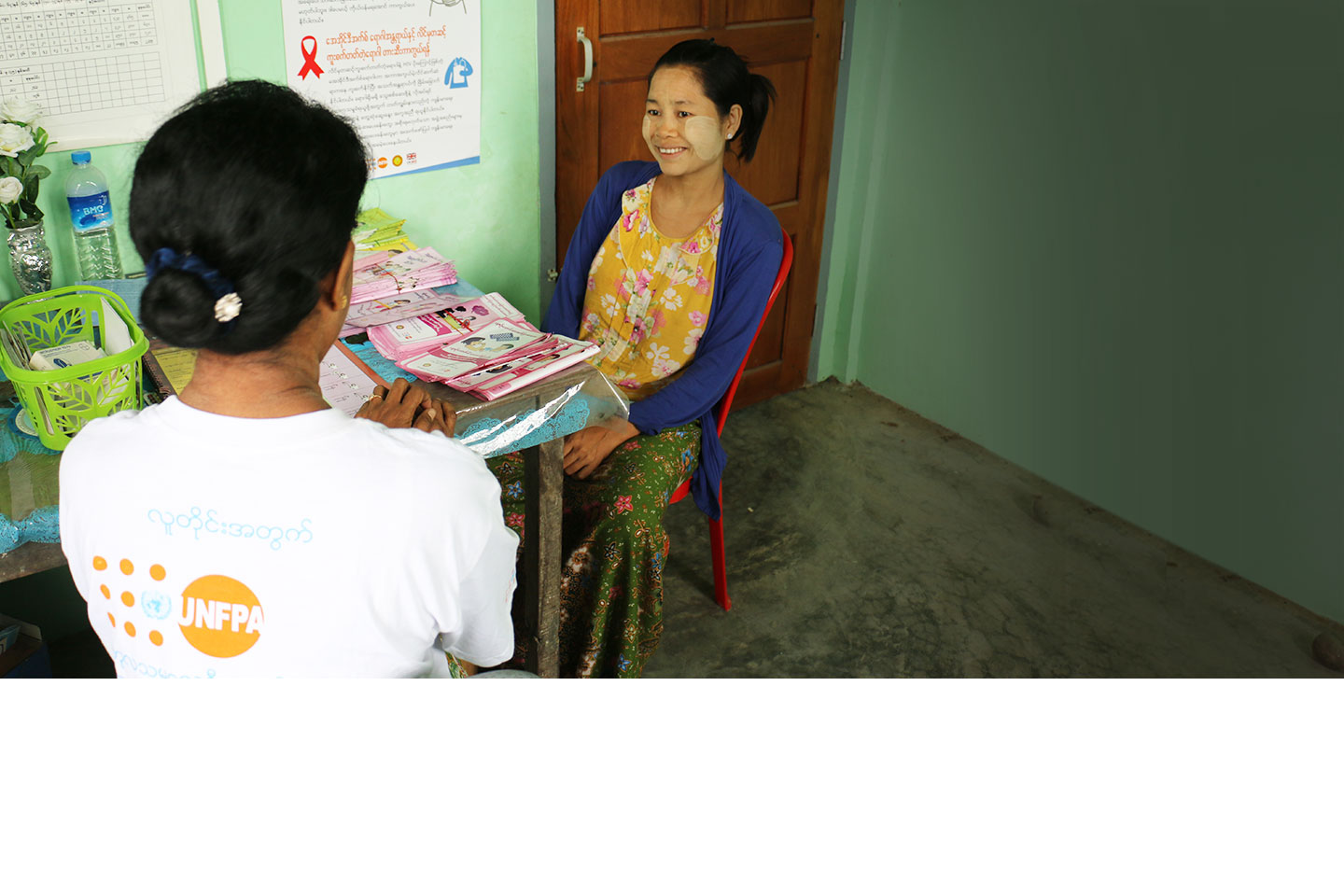
Global progress towards Zero Unmet need for family planning

12% of women worldwide with an unmet need for family planning*
* women age 15-49, married or in union
In 2018, UNFPA continued making the full range of quality contraceptives and services consistently accessible, enabling millions of women to make their own decisions about whether, when or how often to become pregnant. To support countries’ family planning initiatives, UNFPA procured the equivalent of a year’s worth of contraception for about 68 million couples in developing countries.
To achieve zero unmet need for family planning by 2030, governments will have to accelerate actions to expand access to all.
Heading towards zero unmet need for family planning
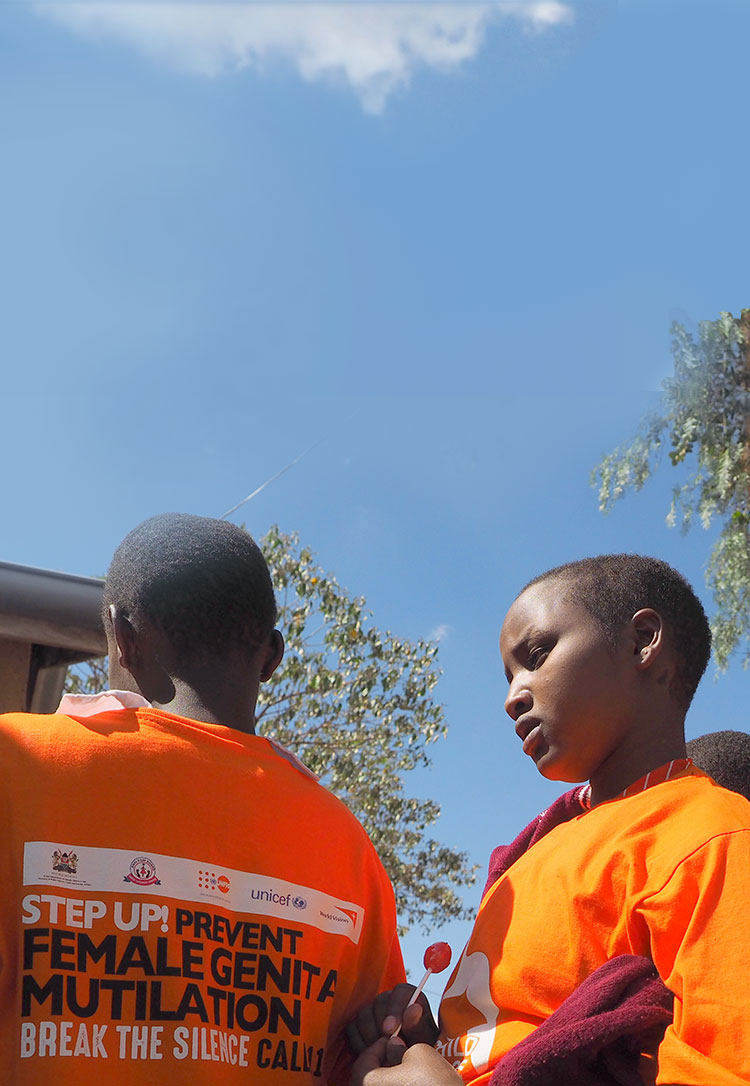
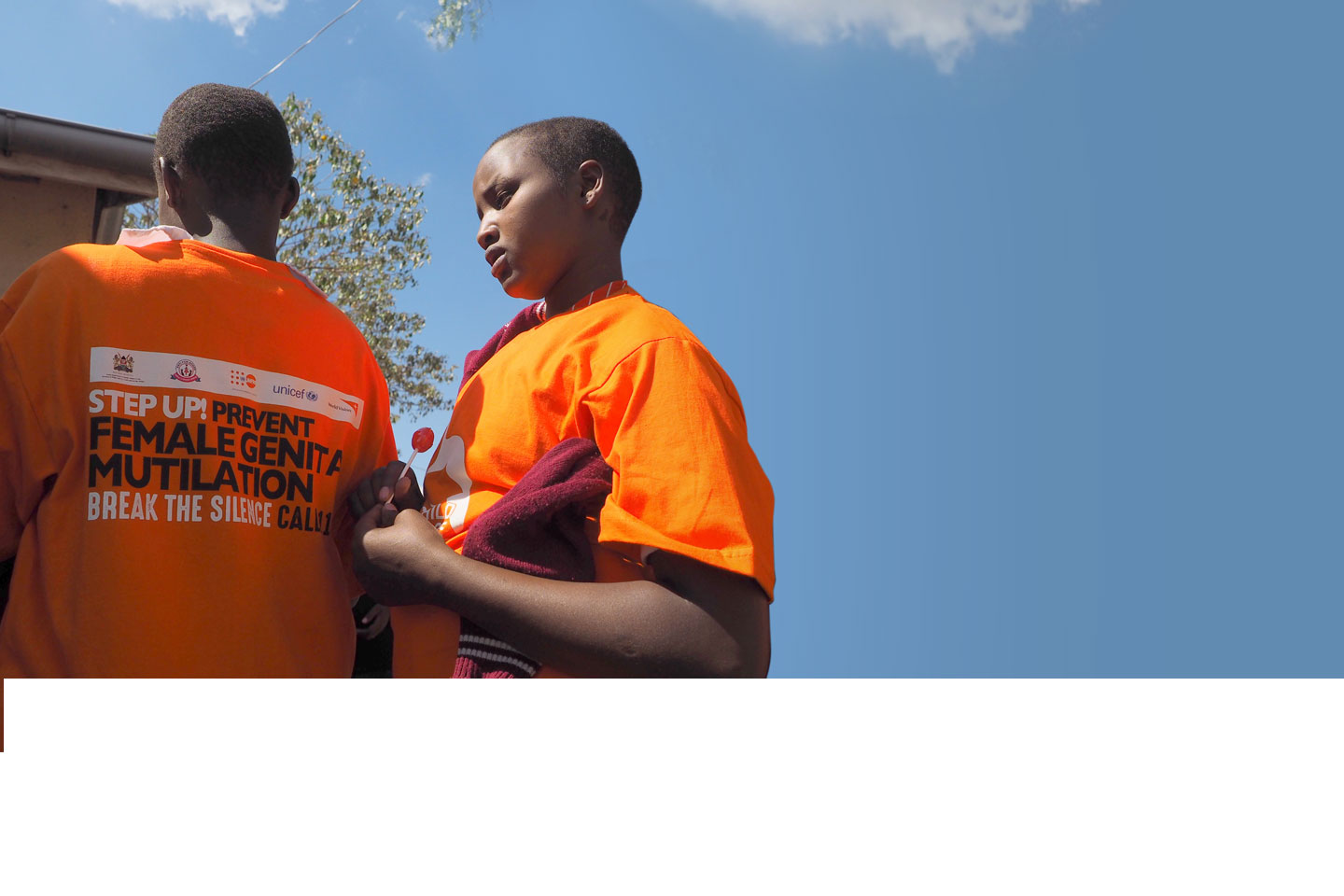
Global progress towards Zero Gender-based violence and harmful practices

18% of women and girls subjected to gender-based violence worldwide**
** physical, sexual or psychological violence by a current or former partner in the past 12 months, women and girls age 15 or older
About one in three women worldwide will have experienced gender-based violence (GBV), physical, sexual or psychological violence, at some point in her lifetime. And, every day, tens of thousands of girls are subjected to the harmful practices of female genital mutilation (FGM) and child marriage.
The rate of FGM has declined over the past three decades. But to achieve the 2030 target of ending FGM, the rate of reduction must accelerate thirteen-fold over the current rate.
The rate of child marriage has also declined, but to meet the 2030 target, progress must be 12 times faster than the rate of the past decade.
Heading towards zero GBV and harmful practices
Of the 85,000 preventable maternal deaths in East and Southern Africa every year, about one quarter are among adolescents and more than half take place in humanitarian settings. UNFPA in 2018 helped reduce preventable maternal deaths in the region through greater access to emergency obstetric care; antenatal, safe-delivery and postnatal care; and modern contraception. Actions included training midwives in 16 countries to provide high-quality, integrated, reproductive, maternal, neonatal, child and adolescent health care. Actions also included collection and analysis of maternal mortality data to identify—and fill—gaps in services.
UNFPA aimed to reduce the unmet demand for family planning, especially among young people and marginalized populations, by improving the quality and reliability of services and by offering a range of contraceptive options.
UNFPA programmes in 2018 advanced gender equality and women’s empowerment and addressed the physical and psychological impact of gender-based violence.
455 number of maternal deaths per 100,00 live births
22% of women with an unmet need for family planning*
28% of women and girls subjected to GBV**
* women age 15-49, married or in union
** physical, sexual or psychological violence by a current or former partner in the past 12 months, women and girls age 15 or older
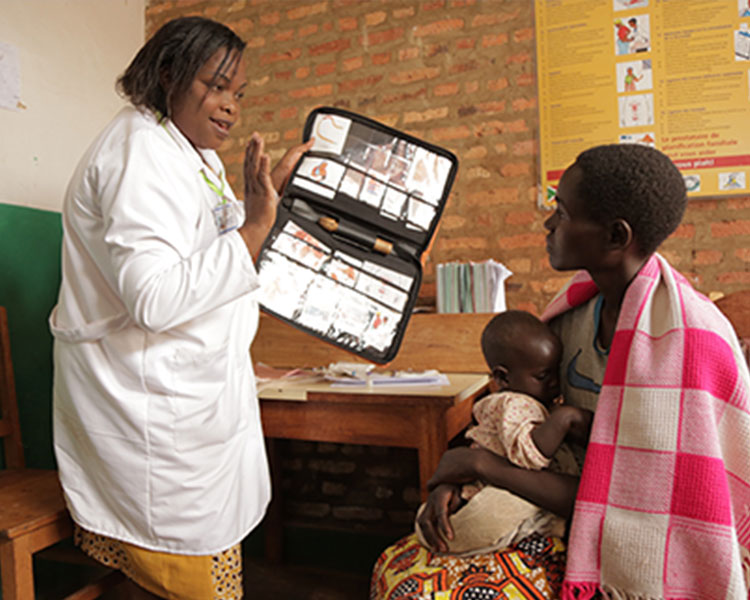
Heading towards
zero
preventable maternal deaths
Number of
Maternal deaths averted Impact of contraceptives supplied by UNFPA 38,243
Health professionals trained on the minimum initial service package with support fromUNFPA 2,078
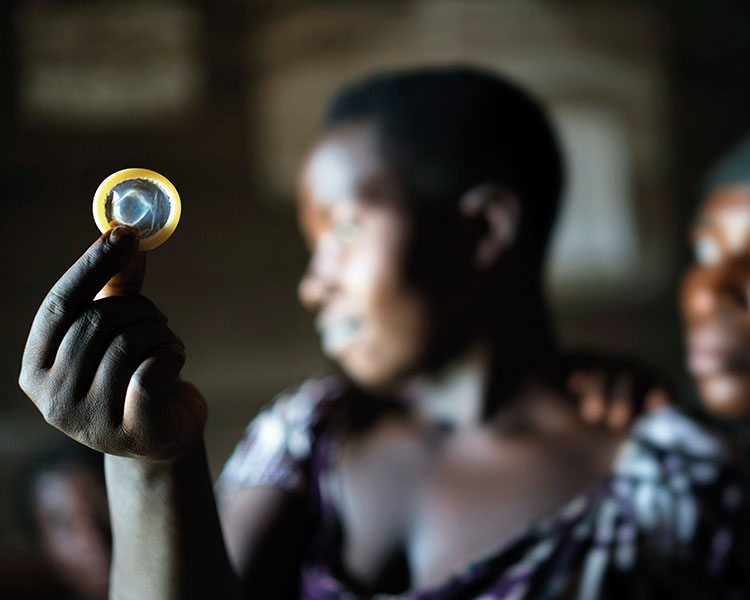
Heading towards
zero
unmet need for family planning
Number of
Unsafe abortions averted Impact of contraceptives supplied by UNFPA 3,192,020
Unintended pregnancies averted Impact of contraceptives supplied by UNFPA 13,789,567
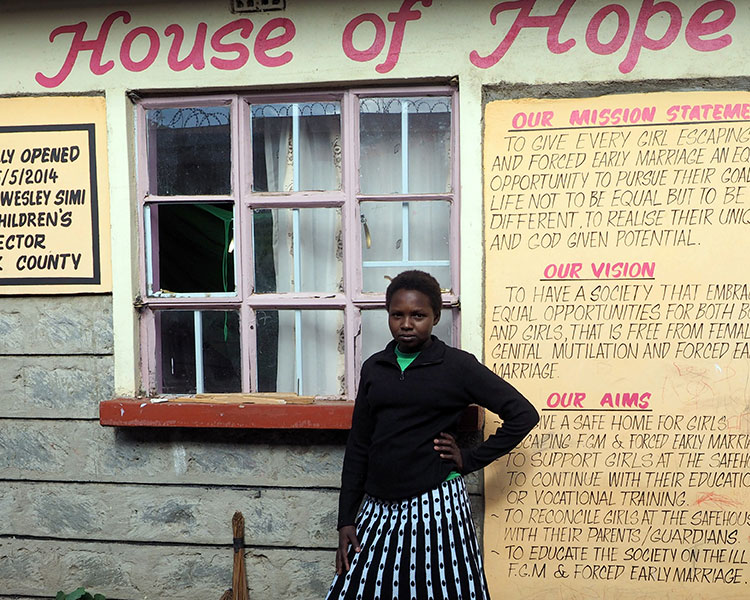
Heading towards
zero
gender-based violence and harmful practices
Number of
Women subjected to violence that have accessed services with support from UNFPA 300,093
Girls who received services related to child, early and forced marriage with support from UNFPA 800,148
Girls and women who received services related to female genital mutilation with support from UNFPA 298,391
2018 | Programme Expenses
In millions of US$
(includes core and non-core resources)
Angola
2.6
Botswana
1.0
Burundi
4.7
Comoros
0.7
Democratic Republic of the Congo
20.8
Eritrea
1.4
Eswatini
1.1
Ethiopia
15.2
Kenya
8.1
Lesotho
1.1
Madagascar
5.2
Malawi
10.7
Mauritius
0.1
Mozambique
26.0
Namibia
1.1
Rwanda
3.0
South Africa
2.2
South Sudan
21.4
Uganda
12.8
United Republic of Tanzania
13.4
Zambia
9.3
Zimbabwe
16.2
Country/territory activities
178.1
Regional activities
6.7
Total programme expenses
184.8
2018 | Programme expenses by purpose
In millions of US$
UNFPA scaled up services to help girls in West and Central Africa make a safe and healthy transition from adolescence to adulthood. Through a Sahel Women’s Empowerment and Demographic Dividend, or SWEDD, project, UNFPA expanded safe spaces for girls who are not in school and at risk of the harmful practice of child marriage. A demographic dividend is the additional potential for economic growth that can result from shifts in a population’s age structure when the share of the working-age population expands relative to the non-working-age population.
Also as part of the SWEDD project, UNFPA supported a new programme to train midwives and nurses with the aim of reducing preventable maternal deaths. Three new Centres of Excellence for the Masters in Nursing and Obstetrics were established in Côte d'Ivoire, Mali and Niger.
UNFPA, through the Ouagadougou Partnership to end unmet need for family planning in nine West African countries, helped 1.4 million women gain access to modern contraception between 2016 and 2018.
676 number of maternal deaths per 100,00 live births
24% of women with an unmet need for family planning*
16% of women and girls subjected to GBV**
* women age 15-49, married or in union
** physical, sexual or psychological violence by a current or former partner in the past 12 months, women and girls age 15 or older
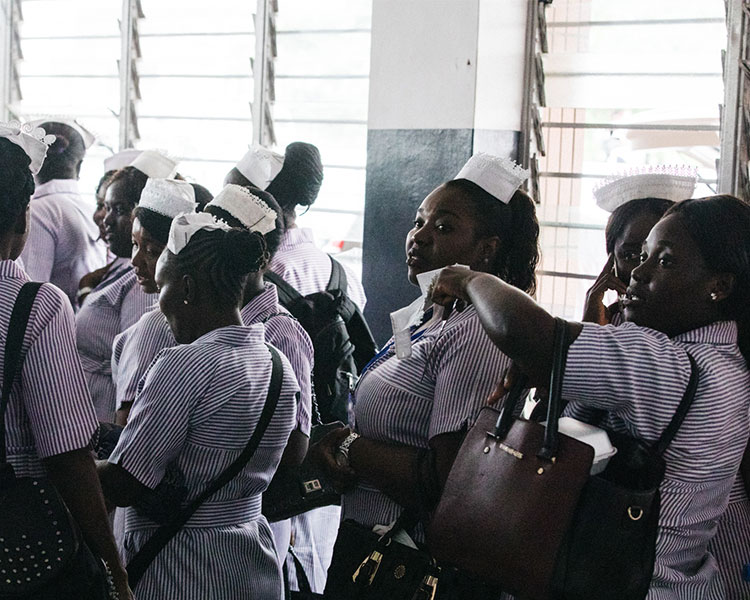
Heading towards
zero
preventable maternal deaths
Number of
Maternal deaths averted Impact of contraceptives supplied by UNFPA 30,120
Health professionals trained on the minimum initial service package with support from UNFPA 2,311
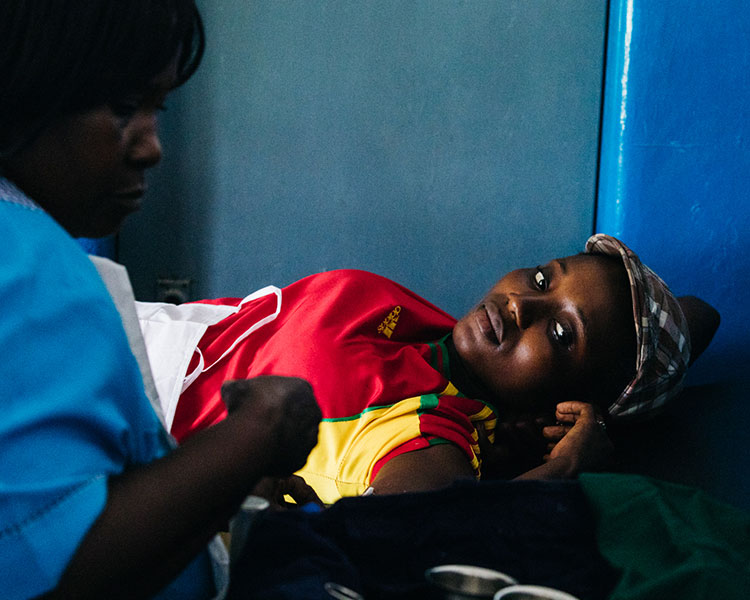
Heading towards
zero
unmet need for family planning
Number of
Unsafe abortions averted Impact of contraceptives supplied by UNFPA 2,432,009
Unintended pregnancies averted Impact of contraceptives supplied by UNFPA 7,011,215
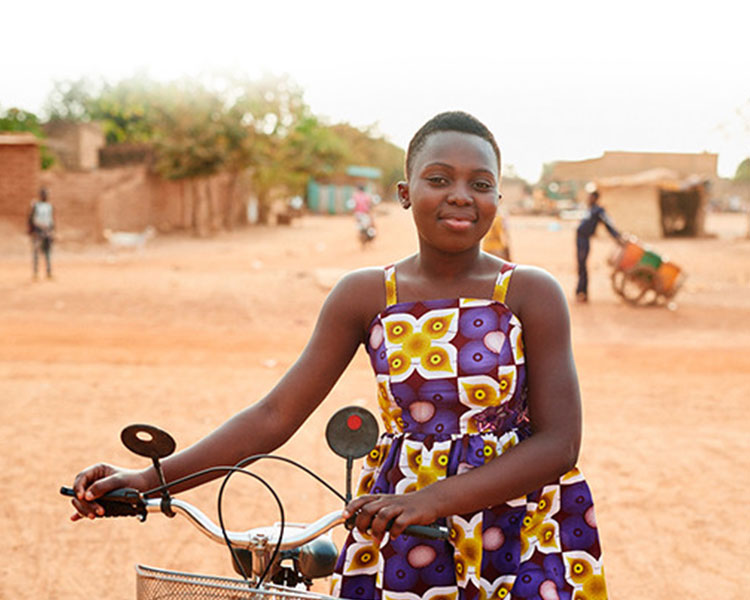
Heading towards
zero
gender-based violence and harmful practices
Number of
Women subjected to violence that have accessed services with support from UNFPA 53,110
Girls who received services related to child, early and forced marriage with support from UNFPA 164,240
Girls and women who received services related to female genital mutilation with support from UNFPA 141,446
2018 | Programme Expenses
In millions of US$
(includes core and non-core resources)
Benin
5.0
Burkina Faso
7.3
Cabo Verde
0.6
Cameroon
7.7
Central African Republic
4.2
Chad
7.3
Congo
1.8
Côte d'Ivoire
6.1
Equatorial Guinea
2.3
Gabon
0.6
Gambia
1.3
Ghana
4.0
Guinea
6.5
Guinea-Bissau
1.1
Liberia
6.4
Mali
9.5
Mauritania
1.5
Niger
13.1
Nigeria
20.0
São Tomé and Príncipe
0.8
Senegal
5.8
Sierra Leone
20.3
Togo
2.6
Country/territory activities
135.8
Regional activities
9.7
Total programme expenses
145.5
2018 | Programme expenses by purpose
In millions of US$
Nine Arab States are responding to humanitarian emergencies, including in Yemen, Syria and Iraq. To save women’s lives in the region’s humanitarian settings, UNFPA supported 131 mobile clinics and 152 emergency obstetric care facilities.
To address gender-based violence in humanitarian settings, UNFPA supported 162 facilities that provided clinical management of rape and 242 safe spaces that provided protection, information and support to survivors.
UNFPA also supported 236 communities in the region in their abandonment of female genital mutilation.
In an effort to reduce the unmet need for family planning, UNFPA expanded the coverage of high-quality, reliable and stigma-free services across the region.
162 number of maternal deaths per 100,00 live births
15% of women with an unmet need for family planning*
14% of women and girls subjected to GBV**
* women age 15-49, married or in union
** physical, sexual or psychological violence by a current or former partner in the past 12 months, women and girls age 15 or older
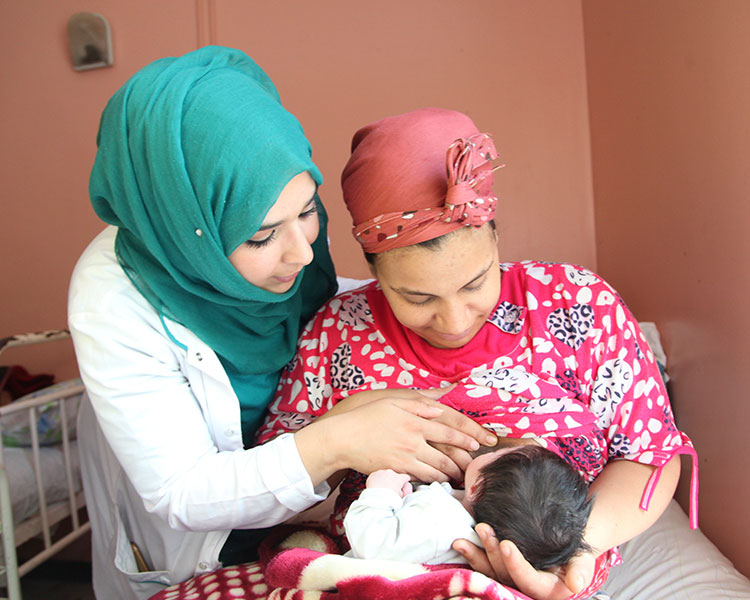
Heading towards
zero
preventable maternal deaths
Number of
Maternal deaths averted Impact of contraceptives supplied by UNFPA 1,933
Health professionals trained on the minimum initial service package with support from UNFPA 1,715
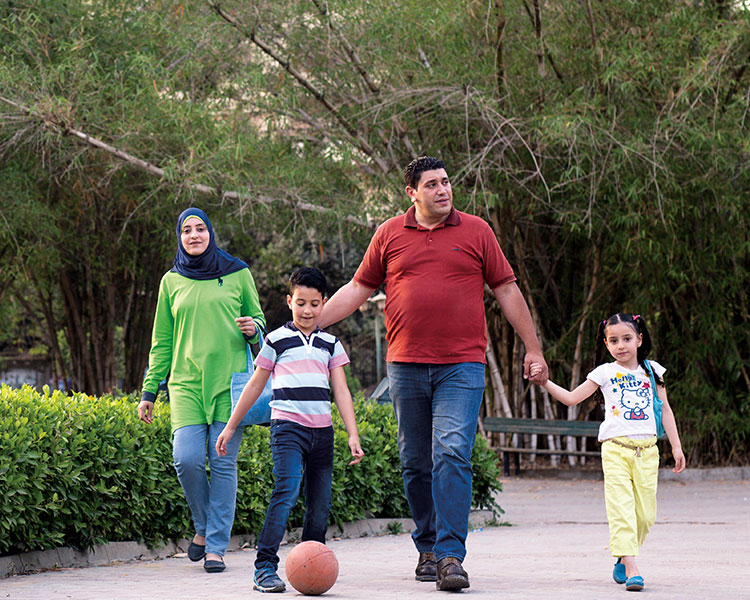
Heading towards
zero
unmet need for family planning
Number of
Unsafe abortions averted Impact of contraceptives supplied by UNFPA 1,261,844
Unintended pregnancies averted Impact of contraceptives supplied by UNFPA 3,464,681
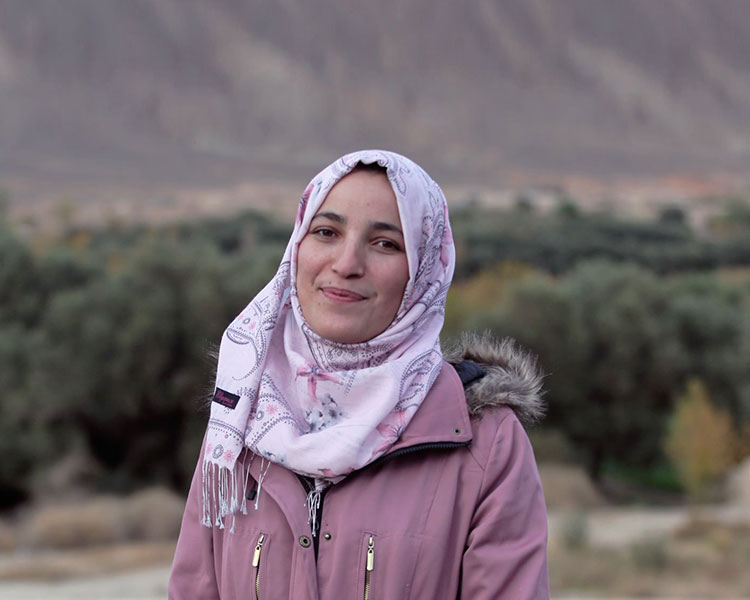
Heading towards
zero
gender-based violence and harmful practices
Number of
Women subjected to violence that have accessed services with support from UNFPA 245,438
Girls who received services related to child, early and forced marriage with support from UNFPA 178,429
Girls and women who received services related to female genital mutilation with support from UNFPA 27,199
2018 | Programme Expenses
In millions of US$
(includes core and non-core resources)
Algeria
0.4
Djibouti
0.8
Egypt
6.9
Iraq
37.0
Jordan
13.7
Lebanon
5.2
Libya
3.9
Morocco
1.4
Oman
1.1
Palestine
4.0
Somalia
20.2
Sudan
10.2
Syrian Arab Republic
34.7
Tunisia
1.2
Yemen
25.0
Country/territory activities
165.7
Regional activities
5.7
Total programme expenses
171.4
2018 | Programme expenses by purpose
In millions of US$
UNFPA in Asia and the Pacific stepped up efforts in 2018 to end preventable maternal deaths, unmet need for family planning and gender-based violence and harmful practices against women and girls. UNFPA stepped up efforts to reduce preventable maternal death in countries with higher maternal mortality ratios, contributing to reaching targets under the Sustainable Development Goals by 2030. These countries are Afghanistan, Bangladesh, Cambodia, Lao People’s Democratic Republic, Myanmar, Nepal, Pakistan, Papua New Guinea and Timor-Leste.
To help meet the goal of ending unmet need for family planning, UNFPA advocated for increased investments in contraceptives and for programmes that enhance reproductive rights in lower-income countries, such as Cambodia and the Lao People’s Democratic Republic. Under the multi-year “kNOwVAWdata” initiative, UNFPA supported the collection, analysis and communication of data about the prevalence of violence against women in the region and created a curriculum to train enumerators in carrying out surveys that protect women’s privacy. In addition, UNFPA increased support for programmes to end the harmful practice of child marriage in South Asia.
127 number of maternal deaths per 100,00 live births
10% of women with an unmet need for family planning*
21% of women and girls subjected to GBV**
* women age 15-49, married or in union
** physical, sexual or psychological violence by a current or former partner in the past 12 months, women and girls age 15 or older
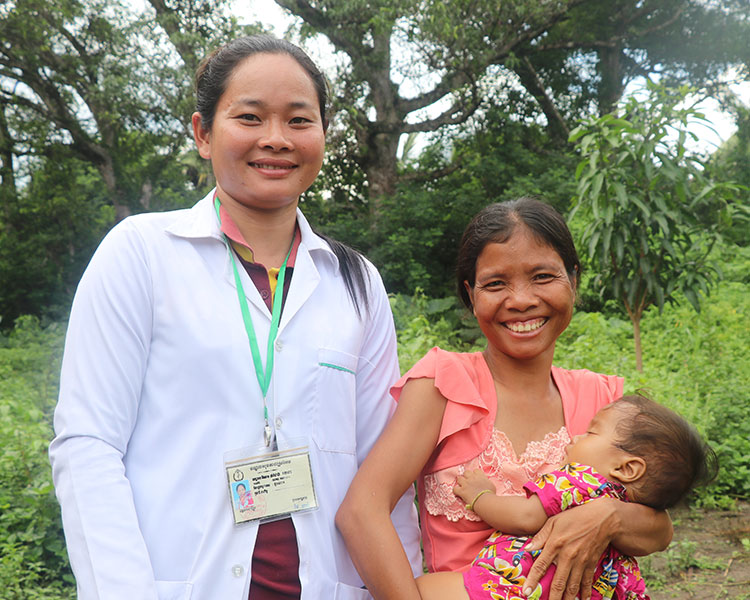
Heading towards
zero
preventable maternal deaths
Number of
Maternal deaths averted Impact of contraceptives supplied by UNFPA 1,576
Health professionals trained on the minimum initial service package with support from UNFPA 966
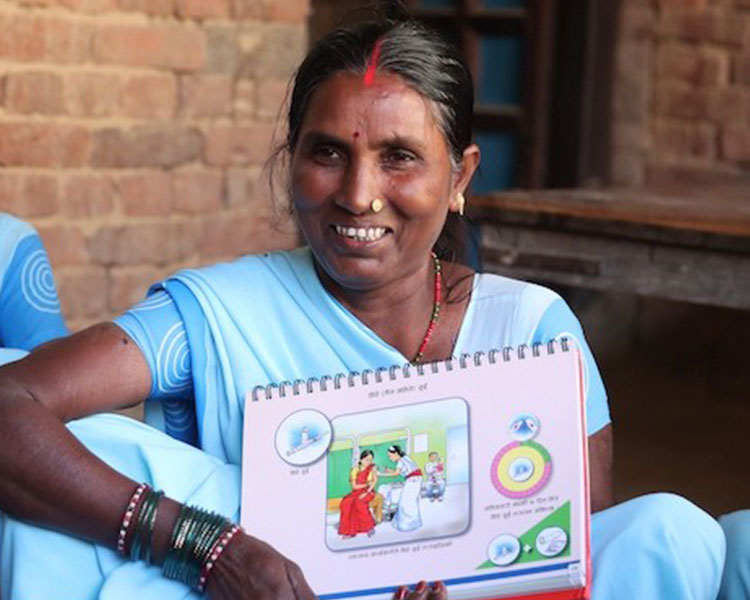
Heading towards
zero
unmet need for family planning
Number of
Unsafe abortions averted Impact of contraceptives supplied by UNFPA 597,127
Unintended pregnancies averted Impact of contraceptives supplied by UNFPA 2,088,203
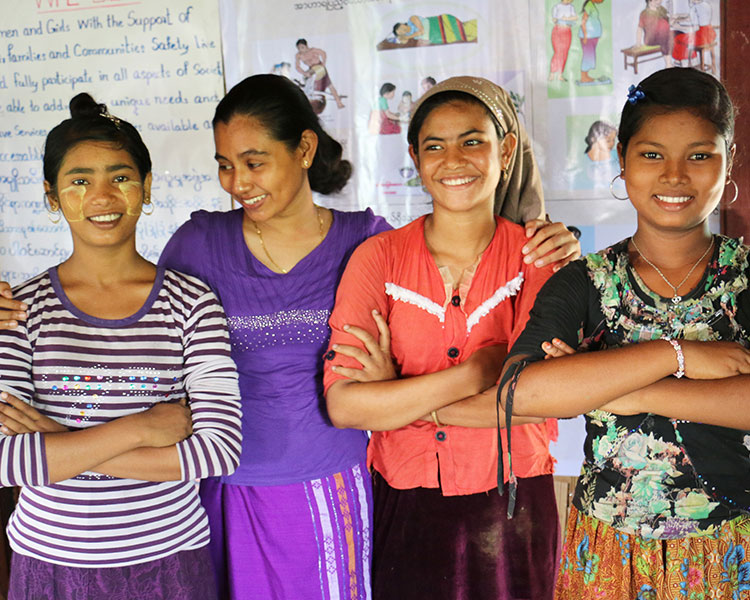
Heading towards
zero
gender-based violence and harmful practices
Number of
Women subjected to violence that have accessed services with support from UNFPA 119,752
Girls who received services related to child, early and forced marriage with support from UNFPA 535,829
2018 | Programme Expenses
In millions of US$
(includes core and non-core resources)
Afghanistan
13.5
Bangladesh
27.8
Bhutan
0.5
Cambodia
1.6
China
1.7
Democratic People's Republic of Korea
1.0
India
7.1
Indonesia
6.3
Iran (Islamic Republic of)
1.2
Lao People's Democratic Republic
2.9
Malaysia
0.7
Maldives
0.4
Mongolia
2.0
Myanmar
12.5
Nepal
7.2
Pacific Multi Islands *
6.9
Pakistan
10.2
Papua New Guinea
3.4
Philippines
4.3
Sri Lanka
1.1
Thailand
0.7
Timor-Leste
1.7
Viet Nam
2.8
Country/territory activities
117.5
Regional activities
6.3
Total programme expenses
123.8
* Cook Islands, Fiji, Kiribati, the Marshall Islands, the Federated States of Micronesia, Nauru, Niue, Palau, Samoa, the Solomon Islands, Tokelau, Tonga, Tuvalu and Vanuatu.
2018 | Programme expenses by purpose
In millions of US$
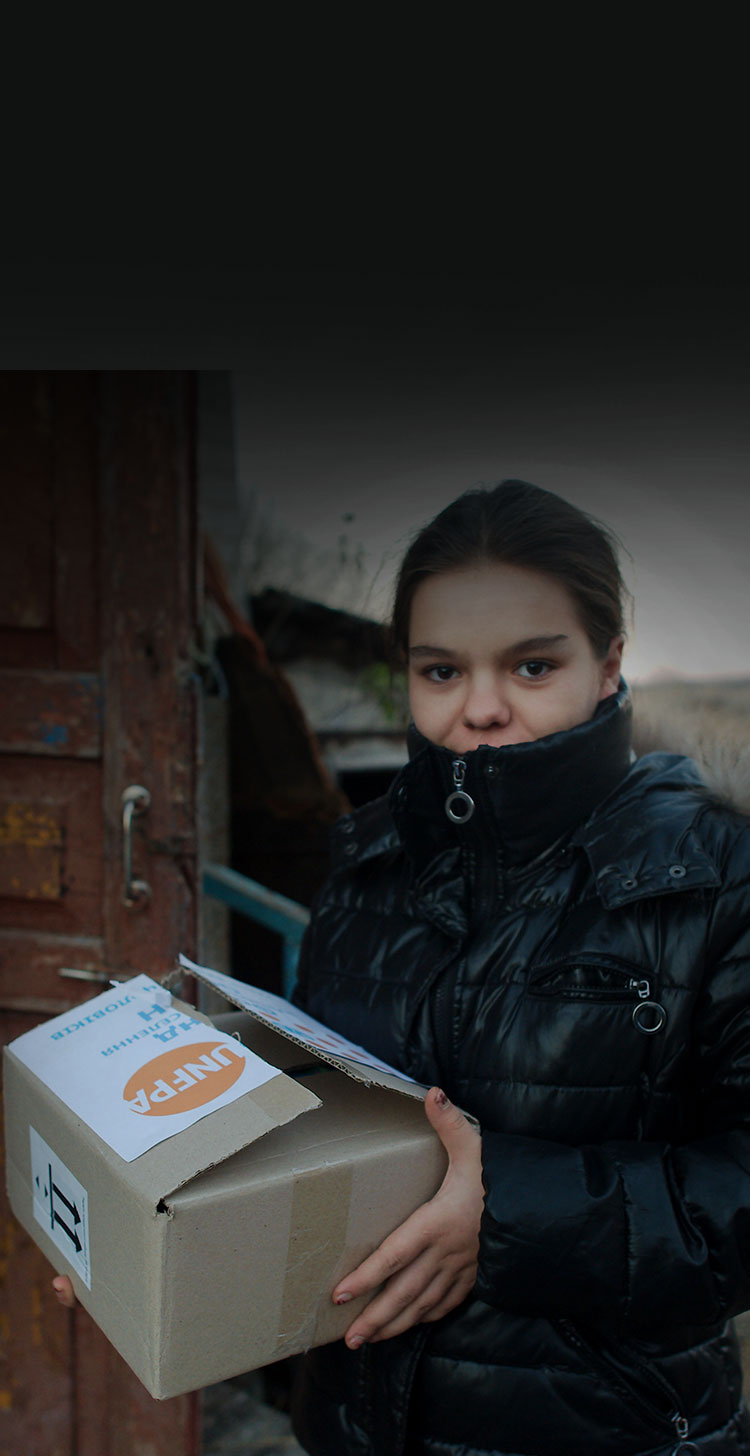
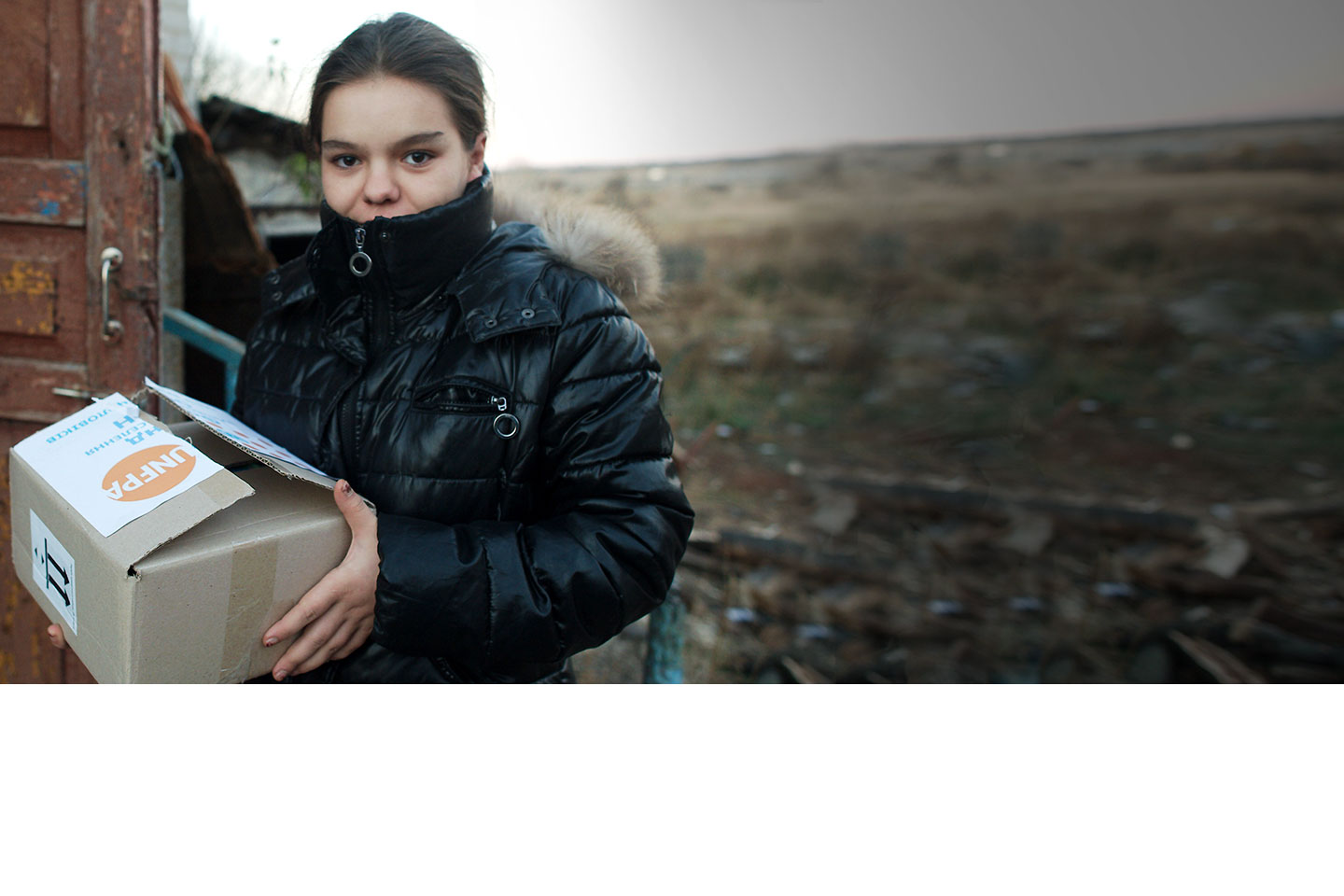
Eastern Europe and Central Asia
In Eastern Europe and Central Asia, UNFPA helped countries make progress towards reaching zero unmet need for family planning and zero preventable maternal deaths. But emphasis was placed on ending gender-based violence, which prevents women and girls from enjoying their rights, including reproductive rights.
In 2018, UNFPA joined an initiative led by the Organisation for Security and Co-operation in Europe to generate, for the first time in the region, comparable data on violence against women and girls. The survey revealed that 70 percent of women had been subjected to some form of violence, and one in three had experienced physical or sexual violence.
UNFPA stepped up efforts to assist the countries of the region in establishing systems that bring together health care, law enforcement and criminal justice to support survivors, and to strengthen services in humanitarian settings. UNFPA also worked across the region to help prevent violence through programmes that raised awareness and promoted behaviour change.
UNFPA also helped engage men and boys in preventing violence, but also more broadly in achieving gender equality, through programmes such as the “Let’s Talk!” campaign, which challenges taboos around women’s health, and through gender-sensitive policies that allow both parents to have careers and share household and care responsibilities.
25 number of maternal deaths per 100,00 live births
10% of women with an unmet need for family planning*
12% of women and girls subjected to GBV**
* women age 15-49, married or in union
** physical, sexual or psychological violence by a current or former partner in the past 12 months, women and girls age 15 or older
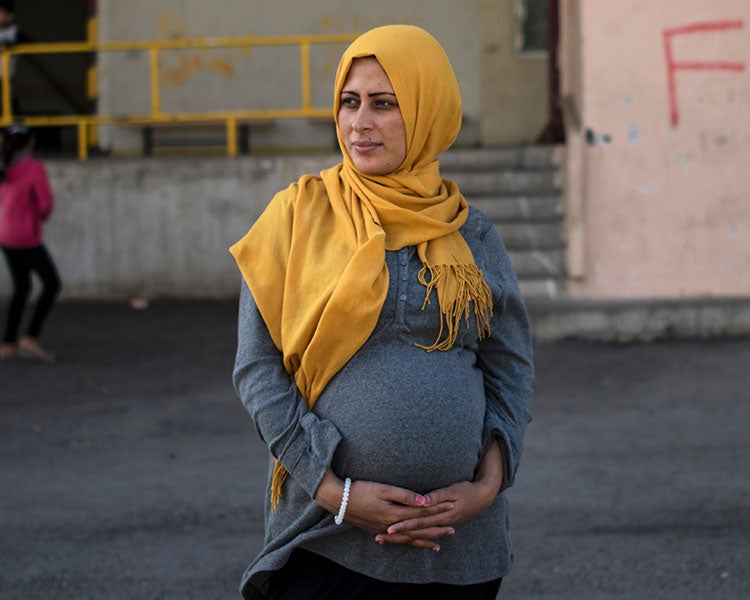
Heading towards
zero
preventable maternal deaths
Number of
Maternal deaths averted Impact of contraceptives supplied by UNFPA 207
Health professionals trained on the minimum initial service package with support from UNFPA 1,144
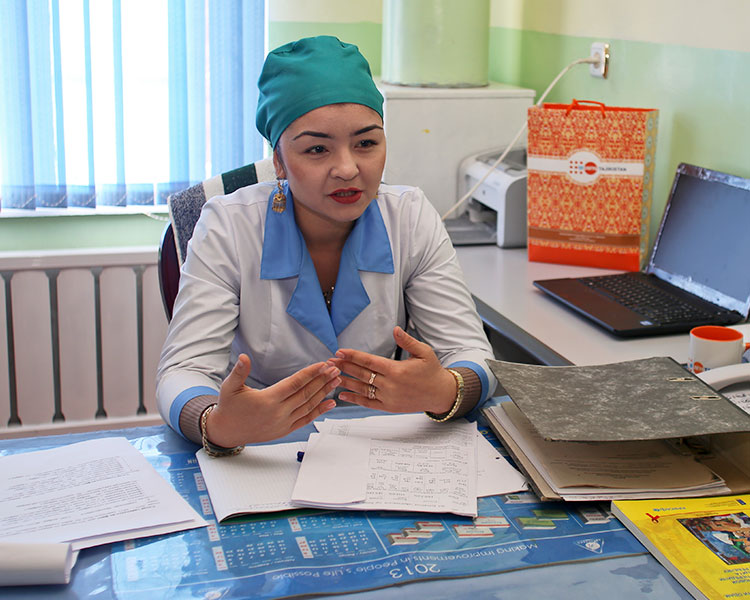
Heading towards
zero
unmet need for family planning
Number of
Unsafe abortions averted Impact of contraceptives supplied by UNFPA 330,868
Unintended pregnancies averted Impact of contraceptives supplied by UNFPA 752,100
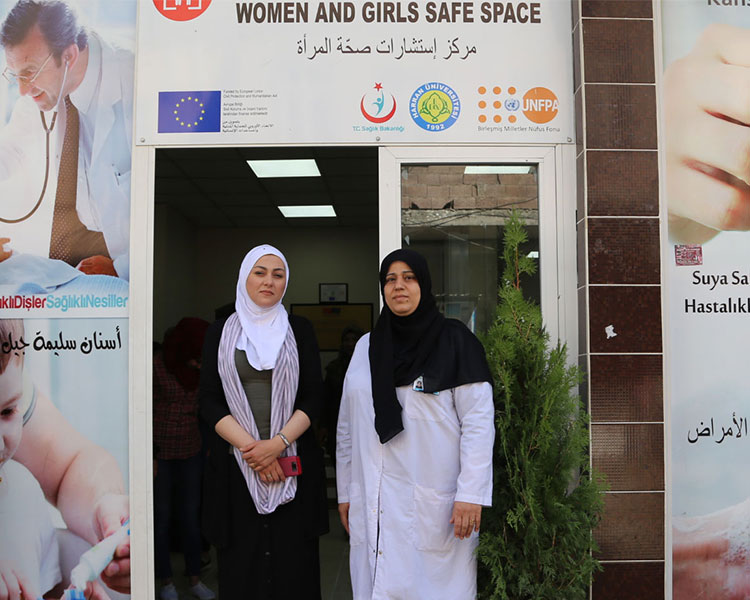
Heading towards
zero
gender-based violence and harmful practices
Number of
Women subjected to violence that have accessed services with support from UNFPA 66,553
Girls who received services related to child, early and forced marriage with support from UNFPA 29,570
2018 | Programme Expenses
In millions of US$
(includes core and non-core resources)
Albania
0.9
Armenia
0.7
Azerbaijan
0.6
Belarus
0.8
Bosnia and Herzegovina
1.0
Georgia
1.3
Kazakhstan
0.9
Kyrgyzstan
1.5
North Macedonia
0.5
Republic of Moldova
0.9
Serbia*
1.1
Tajikistan
1.1
Türkiye
23.5
Turkmenistan
0.6
Ukraine
3.8
Uzbekistan
1.1
Country/territory activities
40.3
Regional activities
4.2
Total programme expenses
44.5
*Includes amount for Kosovo.
2018 | Programme expenses by purpose
In millions of US$
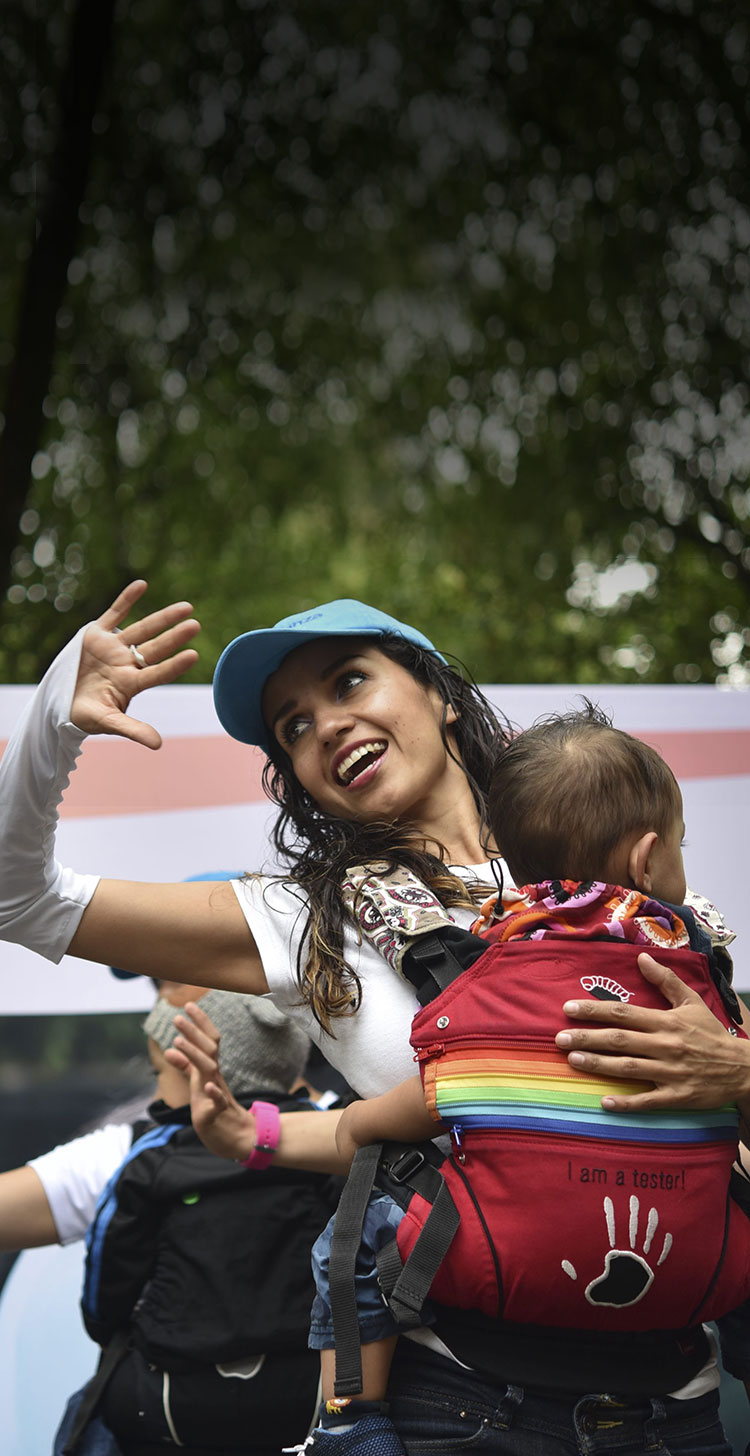
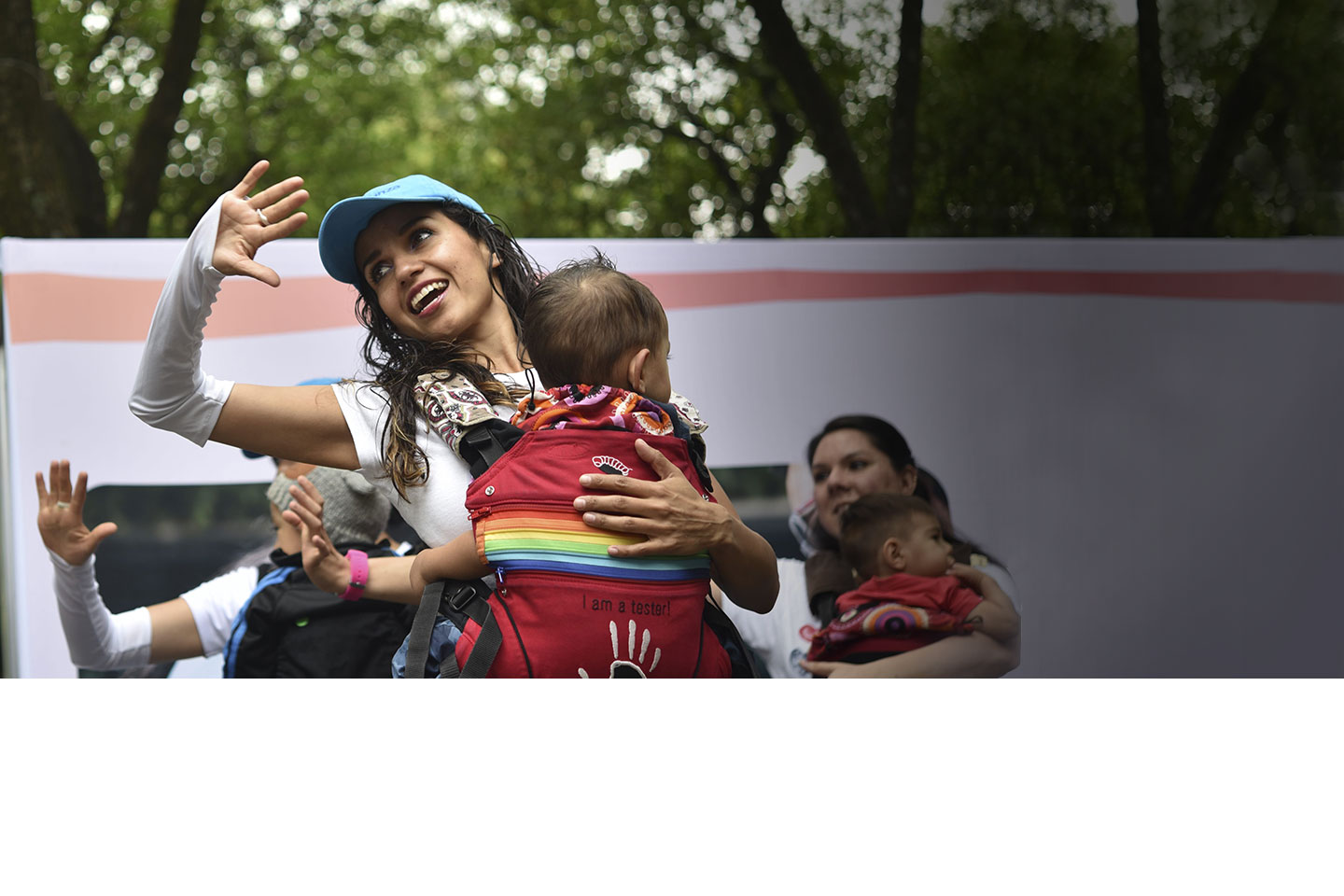
Latin America and the Caribbean
Maternal and neonatal mortality rates have decreased in Latin America and the Caribbean but access to quality care is still out of reach for many pregnant women. In response, UNFPA supported evidence-based interventions that improved the quality of maternal health care, especially in the prevention and management of obstetric complications and emergencies. UNFPA also helped strengthen midwifery training programmes.
UNFPA supported the region’s efforts to end unmet need for family planning by increasing supplies of contraceptives and bolstering capacities to procure and manage supplies of contraceptives and monitor quality. UNFPA also supported the introduction of subdermal implants in four countries.
In collaboration with national stakeholders and partner organizations, UNFPA helped improve coordination of services for survivors of gender-based violence among the health and criminal justice sectors.
68 number of maternal deaths per 100,00 live births
10% of women with an unmet need for family planning*
12% of women and girls subjected to GBV**
* women age 15-49, married or in union
** physical, sexual or psychological violence by a current or former partner in the past 12 months, women and girls age 15 or older
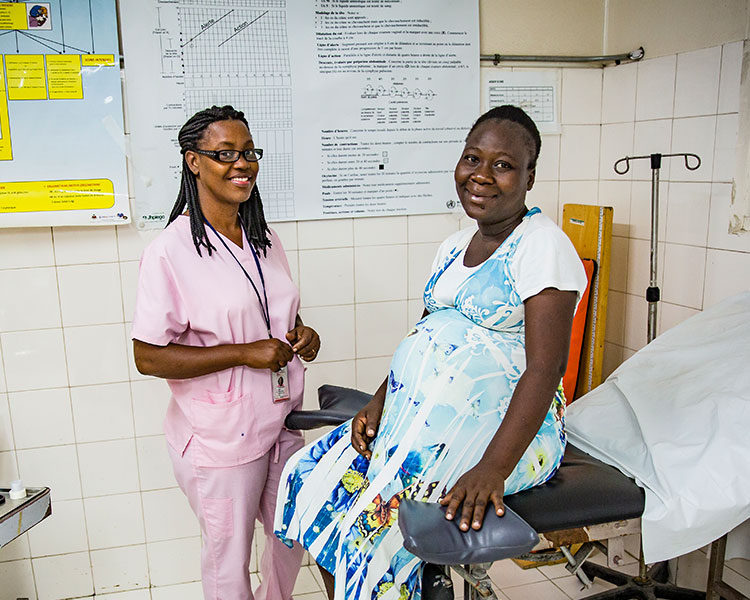
Heading towards
zero
preventable maternal deaths
Number of
Maternal deaths averted Impact of contraceptives supplied by UNFPA 1,134
Health professionals trained on the minimum initial service package with support from UNFPA 3,145
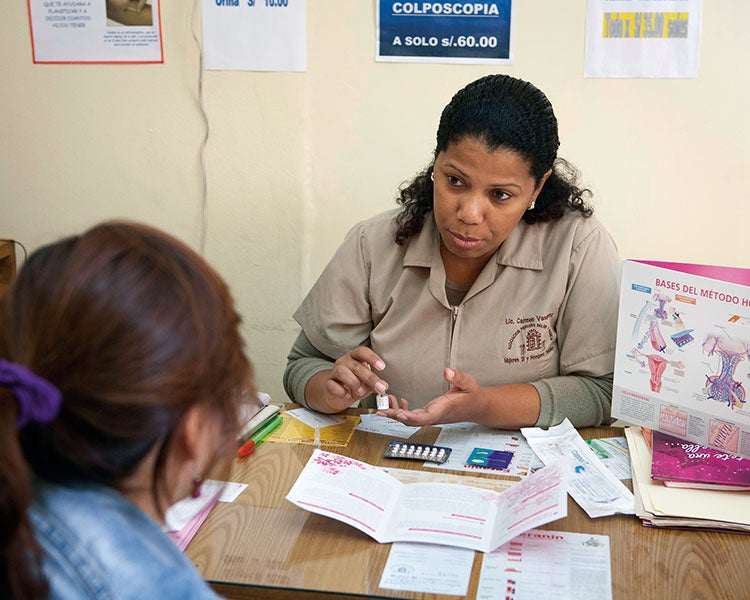
Heading towards
zero
unmet need for family planning
Number of
Unsafe abortions averted Impact of contraceptives supplied by UNFPA 1,006,629
Unintended pregnancies averted Impact of contraceptives supplied by UNFPA 2,831,600
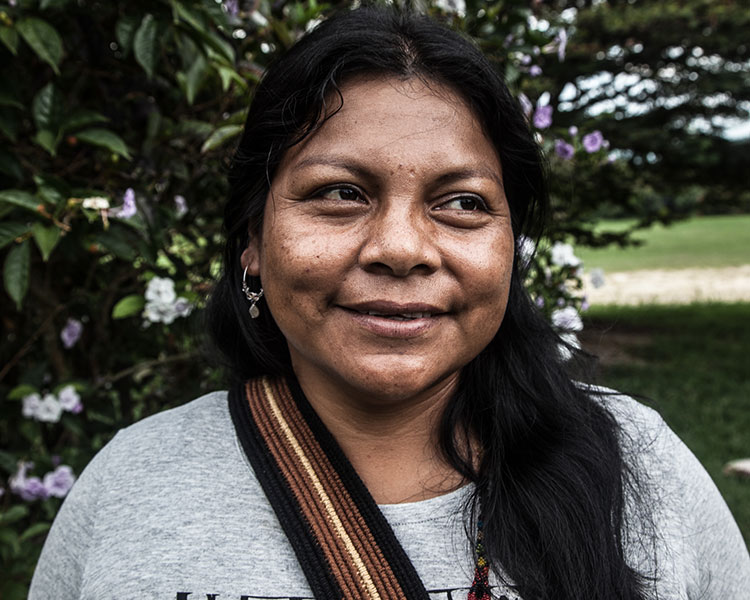
Heading towards
zero
gender-based violence and harmful practices
Number of
Women subjected to violence that have accessed services with support from UNFPA 107,490
Girls who received services related to child, early and forced marriage with support from UNFPA 129,539
2018 | Programme Expenses
In millions of US$
(includes core and non-core resources)
Argentina
0.1
Bolivia (Plurinational State of)
4.5
Brazil
2.3
Caribbean, English- and Dutch- speaking *
2.3
Chile
0.2
Colombia
1.7
Costa Rica
0.4
Cuba
0.9
Dominican Republic
1.0
Ecuador
1.0
El Salvador
1.6
Guatemala
36.1
Haiti
12.5
Honduras
4.9
Mexico
2.6
Nicaragua
0.8
Panama
0.4
Paraguay
0.9
Peru
1.4
Uruguay
1.7
Venezuela (Bolivarian Republic of)
0.7
Country/territory activities
78.0
Regional activities
4.9
Total programme expenses
82.9
* Figures for Caribbean, English- and Dutch-speaking, comprise several countries and islands which, for reporting purposes, have been classified under one heading, including Anguilla, Antigua and Barbuda, the Bahamas, Barbados, Belize, Bermuda, the British Virgin Islands, the Cayman Islands, Dominica, Grenada, Guyana, Jamaica, Montserrat, Saint Kitts and Nevis, Saint Lucia, Saint Vincent and the Grenadines, the Netherlands Antilles (Aruba, Curacao, and St. Maarten), Suriname, Trinidad and Tobago and the Turks and Caicos Islands.
2018 | Programme expenses by purpose
In millions of US$
2018 | Partnerships
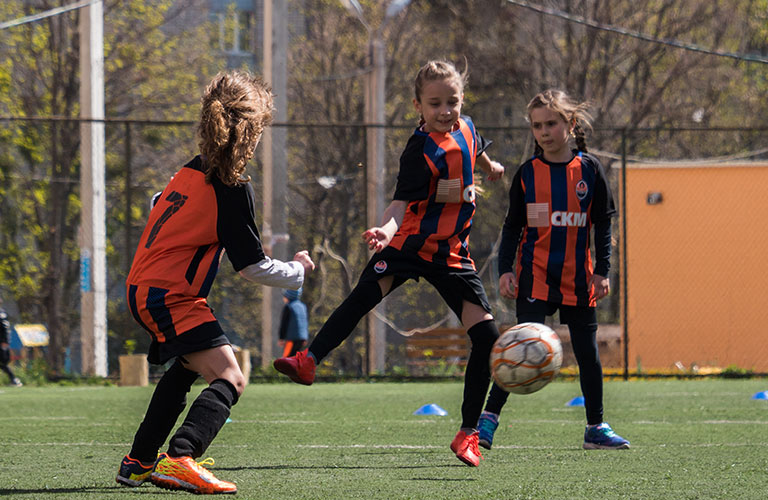
Football Club Shakhtar Donetsk
The partnership between UNFPA and Football Club Shakhtar promoted responsible fatherhood and raised awareness about gender inequality in Ukraine in 2018. Through a Four Hands Happiness awareness-raising campaign, football players reached more than 1.5 million people with messages about the importance of men and women sharing responsibility for household and care work. Also, a result of this partnership in 2018, Football Club Shakhtar established a female football team that challenged stereotypes about gender in sports.

Individual Giving Programme
In 2018, UNFPA piloted the online individual-giving programme, which enabled members of the general public from 41 countries to make donations to UNFPA emergency maternal-health services in Yemen and for Rohingya refugees in Bangladesh.
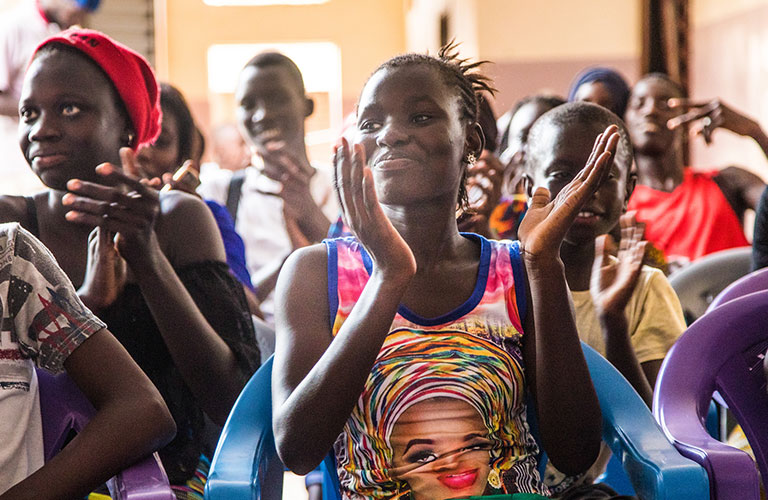
Nutrition International
UNFPA and Nutrition International partnered to integrate nutrition into UNFPA-supported sexual and reproductive health programmes in Nigeria and Senegal. This initiative promotes healthy eating and iron and folic acid supplements during pregnancy to prevent anaemia. The partnership, which is expected to benefit up to 500,000 women and adolescents of reproductive age by the end of 2019, is supported by Canada’s Nutrition Leverage and Influence for Transformation programme.
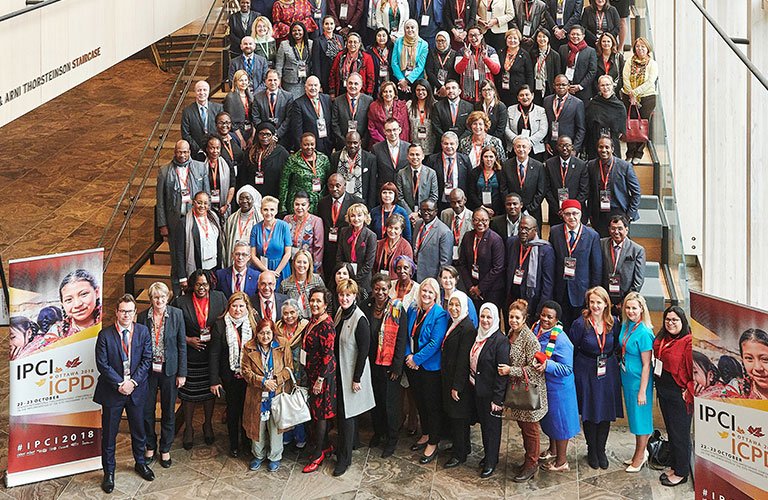
Parliamentarians
Partnerships with parliamentarians have helped build support for the International Conference on Population and Development’s Programme of Action and the Sustainable Development Goals. In 2018, more than 100 parliamentarians from 70 countries adopted the Ottawa Statement of Commitment, pledging to mobilize their constituencies and governments to make bold efforts to fully implement all aspects of the Programme of Action by 2030.
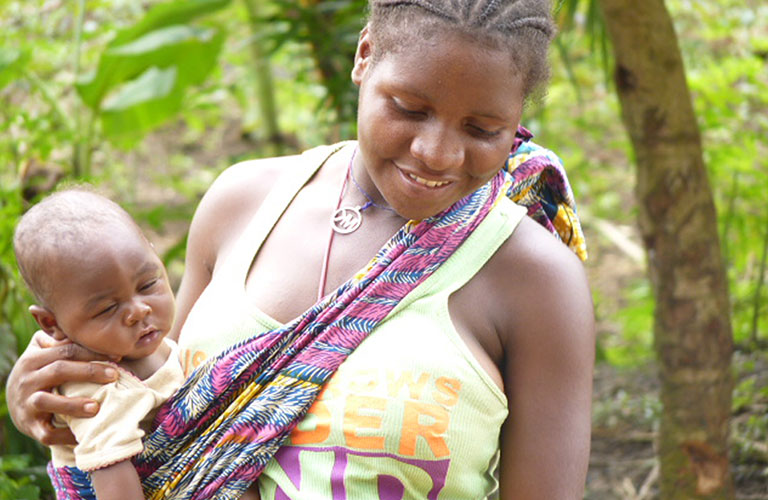
Royal Philips
The global partnership with Royal Philips aims to expand access to quality, affordable health care, including maternal and reproductive health services, for women and girls in marginalized communities. Through the partnership, Royal Philips will help introduce technologies and innovations that can extend the reach of health systems, lower costs and transform maternal health services for 50 million women and girls by 2025. The partnership is being launched in Republic of the Congo with the Ministry of Health and Population.
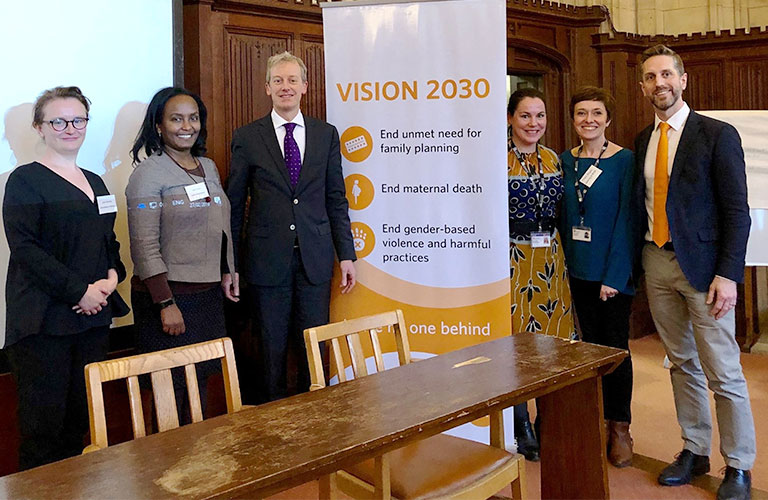
University of Bristol
The partnership with the University of Bristol is enabling UNFPA to collaborate on research to support UNFPA policies and programming aimed ending preventable maternal death, unmet demand for family planning and gender-based violence. The University of Bristol is a founding member of UNFPA’s global university network, TransformU, and hosted the United Kingdom’s first youth dialogue in 2018 on the unfinished business of the Programme of Action of the International Conference on Population and Development.










